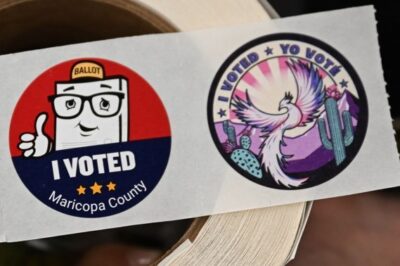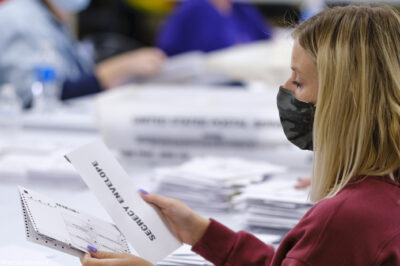During a September 8, 2008 meeting with the ACLU and other civil rights groups, Attorney General Michael Mukasey called the "smooth" running of this election the Department of Justice's highest priority. Despite the ACLU's repeated requests for DOJ to take action to protect voters and stop suppressive tactics, so far, DOJ is not living up to its commitment.
For example, right now, two weeks before the election, the government is engaging in a highly-publicized attempt to raise the "specter of voter fraud" against groups who have been working hard to register poor and minority voters. Unfortunately, DOJ is doing little, if anything, to help the thousands, maybe millions of eligible voters who may turn up on Election Day, just to be sent home. DOJ should be addressing true threats to the election this year, such as voter suppression schemes, unlawful purging, and racially motivated voter intimidation.
Election officials should concentrate their limited resources on expanding access to the ballot box and protecting voters. Mickey Mouse is not coming to an election booth near you. However, when eligible voters do show up, only to find they have been improperly purged from the rolls, we will wonder why DOJ did not enforce the laws that could have prevented it.
Even in this short time before the election, there are several things DOJ could do to protect voters:
1. It is critical that DOJ respond to racially discriminatory voter suppression tactics, such as voter caging and deceptive practices, widely reported over the past several elections. The press should be used to help voters. DOJ should issue a national press statement in advance of the upcoming election affirming DOJ's intention to investigate and enforce the federal civil rights statutes that prohibit minority voter schemes.
2. DOJ must respond to recent threats to challenge the registration of any voter whose address appears on a list of foreclosed homes. DOJ's issuing a statement specifically identifying that foreclosure lists are an unacceptable basis for purging or challenging voter registration would be an important step towards clarifying the misinformation currently facing voters.
3. In communications with the Secretaries of State, DOJ should include reference to the National Voter Registration Act's (NVRA) requirements for the timely processing of voter registrations. This election season, citizens have registered to vote in extremely high numbers. Minority and young voters have demonstrated an enthusiasm to participate in what will prove to be one of the most historic elections in recent memory. Facing what could be an unprecedented administrative challenge for some jurisdictions and armed with the knowledge of problems from earlier elections, DOJ must be vigilant in ensuring that those jurisdictions are in compliance with the law and provide oversight to ensure that applications are being properly and timely processed.
4. DOJ must quickly investigate recent allegations concerning eleventh hour efforts to remove voters from the registration rolls in several states including Alabama, Louisiana, Mississippi, Colorado, Indiana, Ohio, Michigan, Nevada and North Carolina. It appears that these efforts may violate provisions of the Help America Vote Act (HAVA) and the NVRA. DOJ should intervene if the states are breaking the law by conducting last-minute purges of the voter rolls.
5. DOJ and the FBI should not engage in partisan fraud prosecutions in the few weeks left before the upcoming election because of the chilling effect that such actions may have on voter participation. Instead, DOJ should shift limited resources to preventing improper or illegal voter suppression activities that will have the effect of disenfranchising large numbers of people.
The election is less than three weeks away and it is crucial that DOJ act immediately to protect voters from discriminatory interference in their right to participate in November.
Time is running out to make this a smooth and fair election.
For more information about voting rights, visit the following links:
> ACLU Letter to Congress Regarding Joint House Judiciary and House Administrative Committees Hearing
> Leadership Conference on Civil Rights Letter to Congress
> Comparison of Old and New DOJ Policy on Voter Fraud
> New York Times Editorial



